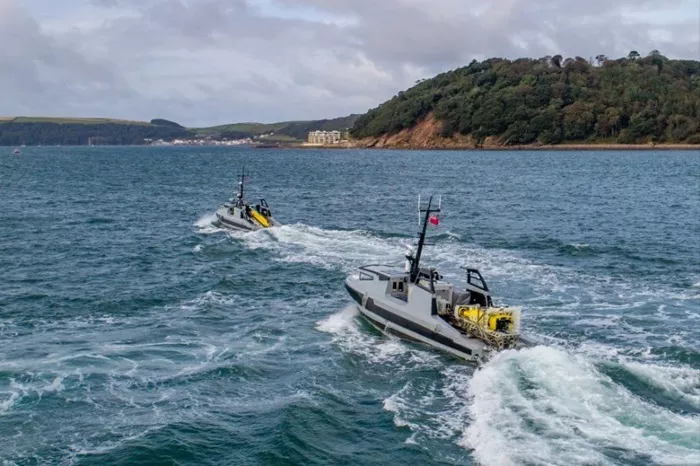The UK has delivered its first fully autonomous mine-hunting vessel, RNMB Ariadne, boosting the Royal Navy’s ability to detect and destroy sea mines without risking personnel.
The 12-meter-long vessel, roughly the size of a bus, was built in the UK under a £184 million contract with Thales UK. The project supports over 200 jobs across Somerset, Plymouth, Portsmouth, and Scotland.
Advanced Capabilities for Safer Operations
Ariadne can be launched from a harbor or a mother ship and uses Thales’ advanced TSAM towed sonar to scan the seabed for mines. The unmanned system allows faster, safer mine clearance and is expected to be used in both UK waters and overseas missions.
The delivery follows the UK government’s pledge to increase defence spending to 2.5% of GDP by 2027, with a goal of reaching 3% in the next Parliament.
Boosting Jobs and Security
Defence Minister Maria Eagle called the delivery a “significant milestone,” highlighting its role in protecting Royal Navy personnel while supporting skilled jobs. “Defence is an engine for economic growth,” she added.
The project is part of a £361 million UK-France initiative managed by the Organisation for Joint Armament Co-operation (OCCAR). It marks a shift from crewed mine-hunting ships to autonomous systems under the Defence Equipment and Support (DE&S) programme.
A New Era for Naval Operations
Rear Admiral Steve McCarthy of DE&S said the delivery was a “proud moment” that strengthens UK security and maritime operations.
After successful trials of the prototype RNMB APOLLO in 2024, Royal Navy crews will now train with Thales before operational testing begins.
Phil Siveter, Thales UK CEO, said the system—enhanced with AI and sensor tech—ushers in a “new era in maritime defence.”
The Royal Navy plans to replace traditional mine-hunting ships with autonomous systems over the next five years, positioning the UK as a leader in naval innovation.

